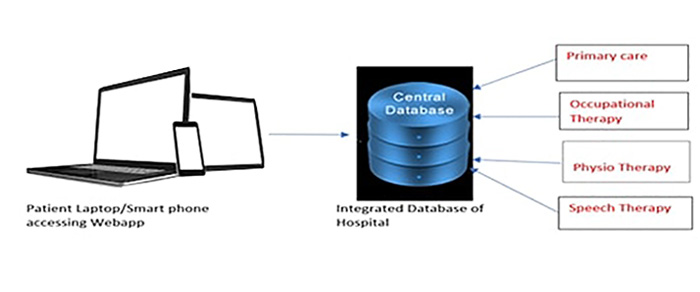PhD Public Defense, Rukaiya Yawar

Title:Capacity Building through Digital Transformation of Occupational Therapeutic Process for Children with Developmental Disabilities in Pakistan
Speaker: Rukaiya Yawar, PhD scholar, Department of Computer Science, IBA
Advisor:Dr. Zaheerudin Asif
External Examiners:
1. Dr. Izhar Hussain (Dow University of Health Sciences)
2. Dr. Syed Abbas Ali (N.E.D University of Engineering & Technology).
Date:Tuesday, September 30, 2025, at 4:00 PM (revised).
Venue: Tabba Conference Room, Tabba Academic Block, Second Floor, Main Campus, IBA Karachi
Abstract
This thesis explores how digital technologies can transform traditional occupational therapy practices to enhance the capacity of therapists and caregivers supporting developmentally disabled children in Pakistan. Its primary aim is to promote equity in healthcare access through team- and organizational-centered capacity building, thereby strengthening Pakistan’s overall healthcare system.
Using strategic management frameworks, specifically the Resource-Based View (RBV) and Absorptive Capacity (AC), the study examines how digital technology can function as a learning tool for caregivers, enhancing their interactions with therapists and equipping them with skills to support children with developmental disorders at home. This research centers on developing and implementing a digital platform to facilitate capacity building within healthcare teams and organizations, addressing critical needs in a resource-constrained environment, particularly in Low- and Middle-Income Countries (LMICs) like Pakistan.
Developmental disorders, such as cerebral palsy, intellectual disability and autism spectrum disorders, can limit an individual's capacity to perform daily activities. Globally, there are 52.9 million children under the age of five with developmental disabilities, out of which 1.8 million living in Pakistan lack suitable access to care. The scarcity of rehabilitation centers, resources, and experts places the care responsibility in the hands of non-specialist community workers or parents. Caregivers, especially in LMICs, face economic and emotional pressures. Therefore, providing help to these caregivers in imparting care and treatment for their children becomes crucial.
To address knowledge gaps, this research employs Design Science Research (DSR), Participatory Action Research (PAR), and Action Design Research (ADR) methodologies. These approaches informed the development of Sehat Agahi, a web-based resource designed to overcome geographical barriers and provide a cost-effective solution for low-income areas. The app, grounded in microlearning principles, aims to enhance caregivers' skills and facilitate effective knowledge transfer between therapists and caregivers. Optimized for low-speed internet connectivity, it supports internal healthcare capacity building through a blend of acquisitive and experiential learning.
Sehat Agahi promotes capacity building at individual, group, and organizational levels within the healthcare system by offering practice-based support and fostering incremental improvements. This approach seeks to evolve capabilities and enable sustainable changes in therapeutic communication between therapists and caregivers.
By addressing socio-economic barriers and obstacles, Sehat Agahi aims to improve therapeutic communication and empower caregivers. A qualitative evaluation study demonstrates improvements in skill development, learning, communication, and overall capacity building among caregivers. Additionally, the app enhances technological skill development in healthcare, contributing to capacity building across organizational levels.
This study highlights how digital technologies can mitigate healthcare disparities in resource-constrained environments, offering valuable insights into the digitalization of occupational therapy processes and the promotion of equitable healthcare access.